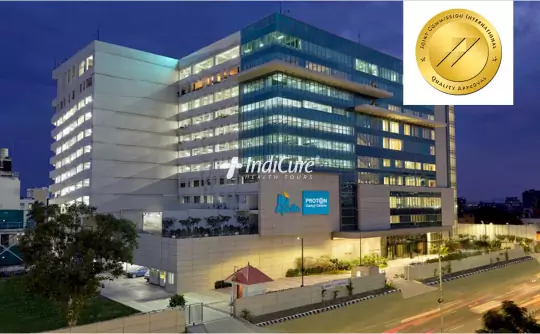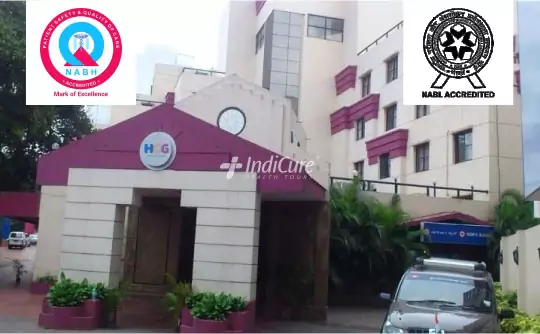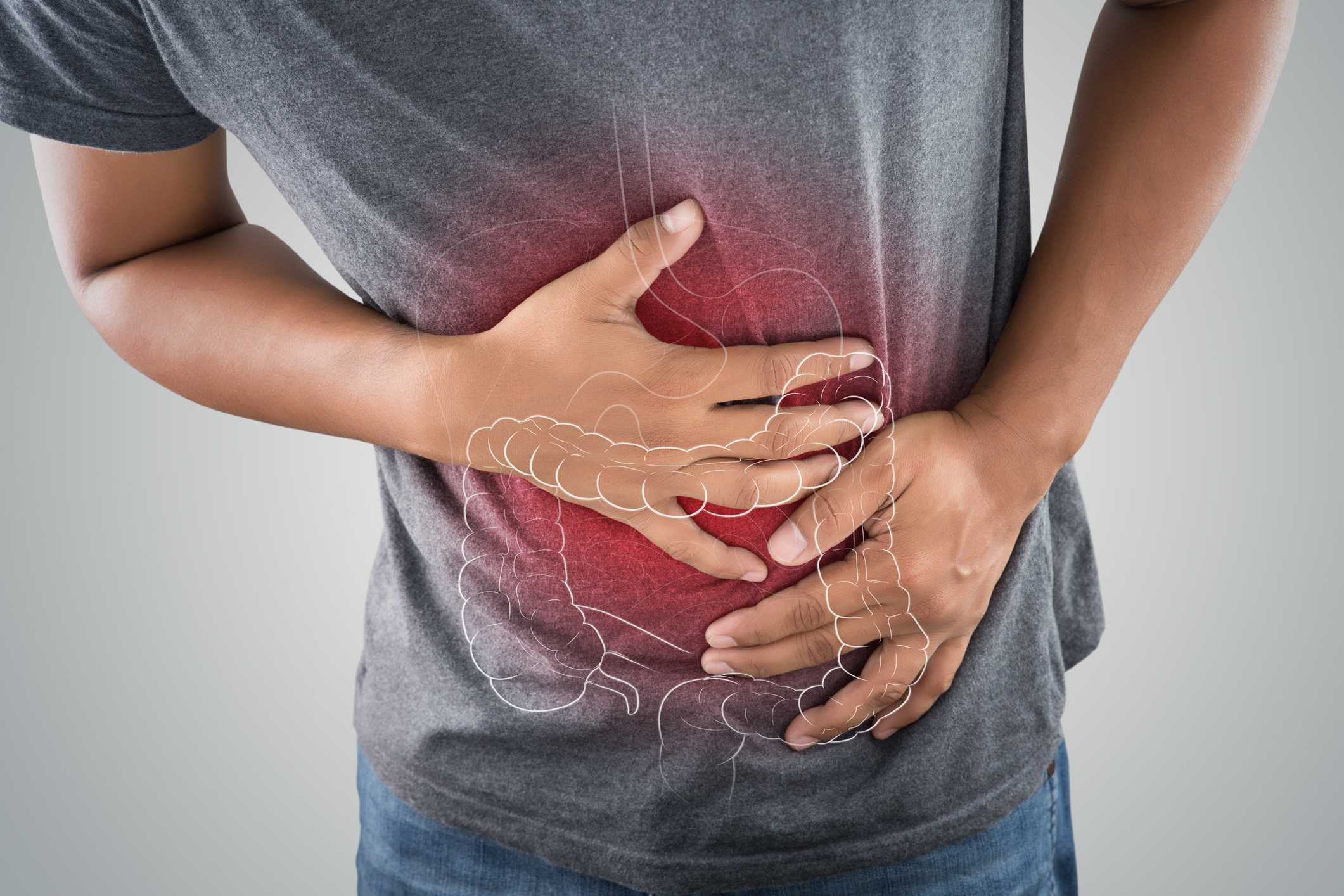

Colon Cancer Treatment Cost in India depends on the type of treatment required, your medical condition, hospital and the city where you choose to get the treatment done.
Typical Costs for Colon Cancer Treatment in India looks like:
| Procedure | Cost (Range in US $) |
|---|---|
| Investigations | 500-1,000 |
| Chemotherapy | 300-2,000 per cycle |
| Radiotherapy | 3,500-5,500 |
| Surgery | |
| Polypectomy | 4,500-5,500 |
| Colectomy | 5,000-7,000 |
| Cryosurgery | 1,500-3,000 |
| Radiofrequency Ablation | 1,600-3,500 |
Many times, the best option might include more than one type of treatment. Surgery, alone or with other treatments, is used to treat most colon cancers. The cost associated with each type of treatment is different. IndiCure recommends you to understand the options by consulting our expert oncologists.
The overall colon cancer treatment cost depends on the number of chemotherapy or radiation therapy cycles that a patient has to undergo. In some patients, the doctors might advise giving more than a couple of cycles of chemotherapy or radiation therapy to kill the cancerous cells.
An important expense when it comes to your breast cancer treatment in India is going to be your oncologist's fees. IndiCure recommends highly experienced, skilled, board-certified surgeons who are capable of delivering successful surgeries. Although the charges may vary depending on the experience of the surgeon, you can be assured that you are in safe and skilled hands when you choose cancer treatment in India with IndiCure.
Having your treatment for breast cancer in an accredited surgical facility by skilled and qualified medical staff is a critical factor. Moreover, the geographical location of this facility in India also affects the quote. But, IndiCure provides you with a projected estimate that will be all inclusive and affordable.
The pre-surgical/treatment expenses are associated with the stage of the cancer and medical condition of the patient and thus the number and type of investigations and treatment required. Post-treatment expenses may include prescription medications and follow-up consultations.
We at IndiCure, understand that you travel with a budget in mind and do not like to be greeted by surprises after arrival in India. We thus club all these expenses and give you the package cost that is inclusive and affordable at the same time.
Your case manager shall give you an estimated cost of your surgery after discussing your medical reports with the surgeon. The final cost, however, shall be confirmed after your consultation with the surgeon.
In fact, we have Special Negotiated Rates with the Hospitals and you can avail Discounted Rates when you choose to Travel with IndiCure.


We Help you Choose the Right Treatment, Surgeon & Hospital

We Arrange Video/Telephonic Consultation with the Surgeon

We Assist you with Visa & Accommodation

We Receive you at the Airport and Drop you at Hotel/Hospital

We Assist you the at Hospital & Provide Post Operative Support

Apollo Proton Cancer Centre
Chennai
The Apollo Proton Cancer Centre (APCC) is South Asia's and the Middle East's first and only proton therapy centre, as well as India's first JCI-accredited cancer hospital. The APCC includes a completely integrated treatment suite that provides the most advanced surgical, radiation, and medical procedures available. The Centre brings together a remarkable team of clinicians renowned globally in cancer care, in keeping with the Apollo Pillars of Expertise and Excellence.

HCG Hospital
Bangalore
HCG- HealthCare Global Enterprises Ltd, is the specialized chain of hospitals in cancer care headquartered in Bangalore. Founded by Dr. Ajaikumar, a renowned medical and radiation oncologist with 40 years of experience, HCG has 26 centres across India with its largest facility in Bangalore.
HCG Hospital Bangalore is not only the most advanced facility for cancer care in India, it is a Centre of Excellence for most advanced cancer care and research.
Colon is a 6 feet long tube-like organ, a very important part of the digestive tract that connects the small intestine to the rectum. Colon and rectum together comprise the large intestine, that is primarily meant for the storage and managing the waste products generated by the body. Colon also helps in absorption of the water from the food.
Cancer that begins in the colon or rectum is termed as colon cancer, rectal cancer or colorectal cancer. Mostly colon cancers are adenocarcinomas which start when mutation takes place in the lining of the wall of the colon or rectum. The cancer usually begins with the formation of polyps often called adenoma in the intestine. Polyps are the abnormal growth of tissue that become precancerous initially and then become cancerous.
Any change in the bowel habits like diarrhea, constipation and change in stool consistency, rectal bleeding or blood in the stool, abdominal pain and discomfort are some of the symptoms of the colon cancer which develops at the later stage and can go unnoticed in the earlier stage. To prevent further spread of the disease and plan the appropriate treatment regime to cure cancer, staging the cancer is important.
It is difficult to pinpoint the exact cause of Colon cancer. But the factors that increase the risk of developing colon cancer are;
There are various treatment options for colon cancer. The treating doctor would suggest the best treatment for the patient or a combination of these depending upon the medical condition of the patient:
Surgery aims at removing the colon or rectum or a part of it affected by the cancer, with or without the adjacent lymph nodes using one of the following approaches. The type of surgery depends on the type, size, location and the extent of the cancer spread.
Polypectomy involves removal of the polyps which are small adenomatous growths that are present in the inner lining of the wall of the colon. They are removed using colonoscopy.
Colectomy involves removing the part or whole of the colon with the cancer and some of the surrounding tissue. This can be done in two ways:
involves removal of the part or whole of the colon through a single large incision in the abdomen.
most commonly used procedure in which colectomy is done through multiple small incisions of about 5-10mm size using laparoscope and specialized laparoscopic surgical instruments.
It involves giving medicines either intravenously or orally to attack and kill the cancerous cells. This therapy can be used before the surgery in order to shrink the size of the tumor or after the surgery to eliminate the cancer cells, if left any. Chemotherapy is also given to slow down the advancing cancer and to relieve the symptoms in case of extensive cancer.
It involves delivery of high powered energy beams like protons or X-rays to specifically target cancer cells without or minimally affecting the normal healthy cells of the body. It can be used in combination with chemotherapy either before or after the surgery, or may be used for relieving the symptoms associated with cancer if the cancer is extensive and cure is not possible.
In the initial stages of colon cancer, many patients show no signs or symptoms. Symptoms will likely vary depending on the size and location of the cancer in your large intestine.
Some of the typical symptoms that patients at an advanced stage exhibit:
If you are suffering from any of the aforementioned symptoms, you should see a doctor immediately who would advise tests to confirm the diagnosis. If you are diagnosed with colon cancer, you need to start the treatment without any delay.
We at IndiCure completely understand your concerns and it is always our endeavor to provide the best outcome for every patient. Following is the list of questions you must ask before you embark on your journey for colon cancer treatment in India.
Prepare to answer questions about your:

This is done under general anesthesia and the whole procedure takes around 1-2 hour to complete.
During the procedure, 4-5 small incisions of 5-10mm are made in the abdomen to insert the laparoscope, which is a thin tube with little video camera attached that enables the surgeon to view inside the abdomen on the monitor.
The surgeon then inserts the laparoscopic surgical instrument via another incision and excises the cancerous part of the colon along with the nearby lymph nodes and removes it from the body. He then attaches back the healthy ends of the colon and sutures the incision on the abdomen.
The results of colon surgery depend on the stage of pancreas cancer. If detected early, there is a good chance of complete recovery.
After the surgery, the patient is moved to the recovery where he/she shall be kept under observation. One may experience pain and discomfort, which is relieved with medicines. The patient is given fluids to recover well. One can expect to return to normal activities after 3-4 weeks of the surgery as the body needs time for recovering from the stress of the surgery. One should restrict lifting heavy objects. Walking should be encouraged.
To maintain the body healthy and working properly, all of the body's cells normally develop, divide, and die. This process can sometimes spiral out of hand. Even when cells are meant to die, they continue to grow and divide. Colorectal cancer can occur when the cells lining the colon and rectum proliferate uncontrollably.
Most colorectal malignancies start out as tiny precancerous polyps (adenomatous or serrated). These polyps often grow slowly and do not produce symptoms until they reach a considerable size or become malignant. This allows for diagnosis and excision of precancerous polyps before they develop into malignant tumors.
Colorectal polyps come in a range of shapes and sizes, but cancer is thought to be most commonly caused by adenomas and sessile serrated lesions, which are precancerous polyps.
When a polyp is discovered during a colonoscopy, it is usually removed. A pathologist examines polyps removed during colonoscopies and evaluates them to see if they contain malignant or precancerous cells. Your healthcare professional will prescribe a follow-up colonoscopy based on the number, size, and type of precancerous polyps discovered during the colonoscopy.
There are a few factors that can raise your chances of getting colon cancer. Although having one of these risk factors does not guarantee that you will get colon cancer, it does increase your chances.
Unavoidable Risk Factors:
Some conditions that raise your risk of colon cancer are unavoidable. Your age, race, and family health history, for example, can all influence your risk of colon cancer.
Risk factors you have no control over:
Avoidable Risk Factors:
Other risks can be avoided. This implies you can alter your lifestyle to reduce your chance of colon cancer. Risk factors that can be avoided include:
Individuals at intermediate risk of colorectal cancer should begin frequent screening around the age of 45, according to the American Cancer Society. Other specialists advise that average-risk adults begin screening no later than the age of 50. If you have a personal or family history of colorectal polyps or cancer, or inflammatory bowel disease, you should start screening before the age of 45. Colorectal polyps and cancer affect both men and women, thus both should be screened. Inquire with your doctor about the ideal age to begin screening based on your unique risk factors.
Getting a terrible diagnosis like colon cancer can be frightening and stressful. Colon cancer, fortunately, is treatable, especially when diagnosed early. According to the American Cancer Society, colon cancer that is detected before it has spread beyond the colon and rectum has a 91 percent 5-year survival rate. These survival rates are also based on information from 2010 to 2016. In recent years, new cancer treatments have resulted in increasingly better outcomes.
| Colon cancer stage at diagnosis | Survival rate |
|---|---|
| Stage 0 and Stage 1 | 91% |
| Stage 2 and Stage 3 | 72% |
| Stage 4 | 14% |
| Overall | 63% |
You might be surprised to know that there are several different types of colon cancer. There are several types of malignant cells, as well as cells in various areas of the gastrointestinal tract that might rise to colon cancer.
Adenocarcinomas are the most frequent kind of colon cancer. Adenocarcinomas develop in the cells that produce mucus in the colon or the rectum. Adenocarcinomas account for the majority of colon cancer cases, according to the American Cancer Society.
Colon cancer is caused less frequently by these forms of tumors, such as Lymphomas, Carcinoids, Sarcomas, and Gastrointestinal Stromal Tumors.
A variety of tests can be used to diagnose colorectal cancer. The disease can be detected if you exhibit symptoms or if your caregiver notices something abnormal during a screening test.
Your doctor may do the following tests as part of the diagnosing process- Blood tests (Complete blood count, tumor markers and liver enzymes)
Make your medical trip to India even more comfortable and complete with our range of additional services, designed to take care of all your needs beyond the hospital.
Traveling abroad for medical reasons can be challenging if you are alone, but with IndiCure by your side, it doesn't have to be. With over fifteen years of experience and an exclusively curated network of India's best surgeons and top hospitals, we make your medical tour to India easier and safer. We will guide you at every step, handling all the end-to-end arrangements for your surgery, travel, and stay.
Ramandeep Dhaliwal
a month ago
I had great experience having rhinoplasty through Indicure. Dr. Ruchika from Indicure has helped me in finding best plastic surgeon, answering all my questions...
Ramandeep Dhaliwal's Full Review
Joshua Archer
3 months ago
My name is Joshua Archer I'm from New Zealand, bay of plenty, kawerau I opted for the bypass surgery in January 2023 but planned it in advance for 28 September found IndiCure...
Joshua Archer's Full Review
Kera Ren
8 months ago
Absolutely loved my experience with IndiCure - from first inquiring to meeting the surgeon pre op to my follow up post op. The surgeon was extremely approachable...
Kera Ren's Full Review
Andreana Paul
5 months ago
Had a wonderful experience. Visited India for my plastic surgery. From sending mails, airport pickup, comfortable accommodation and, to smooth hospital appointment booking...
Andreana Paul's Full Review
Brandi Luce
5 months ago
I had the privilege of using Indicure's services for a cosmetic procedure that I had wanted for a long time but had always been apprehensive about. Ruchika helped me...
Brandi Luce's Full Review
Jade M
3 years ago
Indicure Health Tours went above and beyond my expectations. They helped me with every aspect of my journey and were professional, kind and caring. I was...
Jade M's Full Review
The content on the website (www.indicure.com) is intended to be general information and is provided only as a service. All photographs on our website of before and after results are examples only, and do not constitute an implied or any other kind of certainty for the result of surgery.
Learn about IndiCure Health Tours' comprehensive editorial policy that strives to deliver trustworthy, helpful, relevant, accurate and people-first content on medical tourism in India.
It is not medical advice and should not be taken as medical advice. It should not be used to diagnose or treat a health condition and is in no way meant to be a substitute for professional medical care. You are advised to see a surgeon in person to assess what surgery may or may not accomplish for you.
It is also important to keep your expectations realistic and to understand that all surgical procedures carry risks and should never be taken lightly.